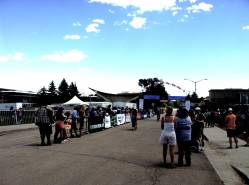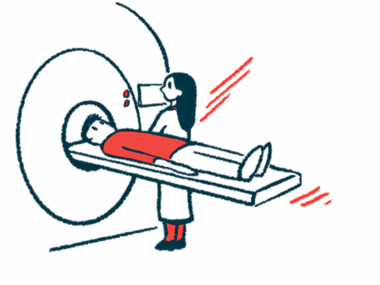Bike MS Ride in Colorado Raises $3.8 million To Support Research
Written by |

 Bike MS, a two-day ride between Westminster and Fort Collins, in Colorado, raised $3.8 million to support the multiple sclerosis (MS) research, thanks to the help of over 3,000 riders, volunteers, and advocates. Bikers started the journey last Saturday and rode back to Westminster Sunday morning.
Bike MS, a two-day ride between Westminster and Fort Collins, in Colorado, raised $3.8 million to support the multiple sclerosis (MS) research, thanks to the help of over 3,000 riders, volunteers, and advocates. Bikers started the journey last Saturday and rode back to Westminster Sunday morning.
The money raised, from a total of 30,000 donors, will support research on the antigen attacks to the central nervous that damage the fatty, protective substance around nerves called myelin. From the damage, over 2.3 million people have their flow of information from the brain to the body interrupted. Current studies aim to repair the myelin, which may restore the function in areas of the body already attacked by the immune system.
“Basically, when myelin is damaged, it disconnects the flow within the brain as well as from the brain to the body, it is like when a phone charger starts to fray at the ends and then your phone will no longer charge,” explained the MS bike chapter president Carrie Nolan. “Researchers are looking into stem cell research of how to promote myelin growth and also looking into if people with MS maybe have too much of a natural molecule existing.”
Colorado State University Professor Thorsten Rudroff, from the department of Health and Exercise Science, is already performing research on the initial onset of MS and the contributing factors to the weakening of muscle and fatigue. In his studies, he analyzes the amount of glucose present in the muscles of MS patients.
“Significant negative impacts on activities of daily living and social participation occur due to impairments of walking, and are perceived by patients with multiple sclerosis to be one of the main contributors to a poor quality of life,” Rudroff said in an interview to Joshephine Bush from The Collegian. “Progressive worsening of walking abilities has been associated with weakness of one leg, which is often one of the first signs of MS.”
Even at lower walking speeds, patients with MS with mild neurological signs present with greater glucose uptake than that of healthy controls, according to Rudroff’s study recently published at the Journal NeuroRehabilitation. The researcher established a correlation between the levels of glucose in a muscle and fatigue. Since MS patients suffer a deterioration and breakdown of the muscles caused by the increase of the glucose, it may explain the fatigue felt and the difficulties in walking.
[adrotate group=”4″]
CSU is one of the sponsors of the Bike MS, since 2007, and the event “is an amazing community, bringing people who have MS and their friends and family together, it creates a community and long-term relationships that are truly supportive,” said Carrie Nolan, as she explained that MS patients also have problems in finding a sense of place after their diagnosis.
Among the 3,000 cyclists in the ride, some were MS patients, and the ones who couldn’t participate sponsored other riders or participated as volunteers. That is the case of Suzanne Perschall, who was diagnosed in 1996 at 38 years old. Despite not being able to participate, she volunteered in the event. “Today is a gorgeous day and everyone is in high spirits. Seeing everyone come together, those with MS and also their family and friends, is beautiful,” she said on Saturday.
Like Perschall, 7,000 other people offered to serve food, provide information, register donations, and ensure the safety of the event. “Bike MS runs so smoothly because there are so many volunteers and staff members which believe in what they are doing,” said Michael Connor, a Toyota employee, one of the sponsors of the event, and bike ride participant. “At other events you ask people why they are volunteering and they just say ‘because,’ but these volunteers know the why and believe in the why.”





